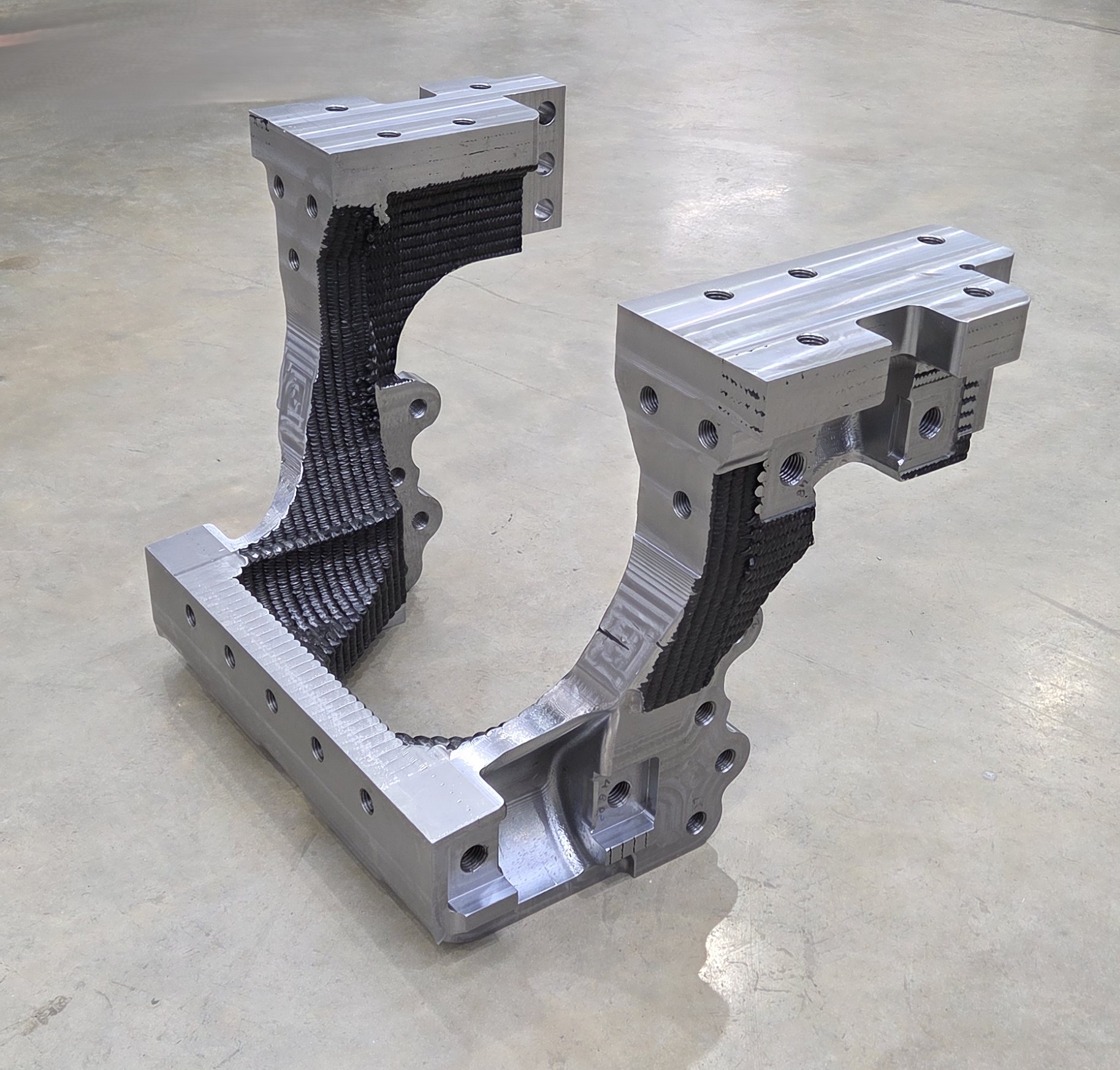The Digital Manufacturing Centre (DMC), an industry-leading production facility and additive manufacturing (AdM) Engineering Research & Development centre, has announced the successful delivery of the largest AdM metal component the DMC has worked on to date - a 3D printed 90kg Mastiff suspension and differential carrier for NP Aerospace. The production process engineering and development, manufacture and certification of this innovative methodology proves DMC’s ability to pioneer large scale format AdM metal components to MoD’s exacting requirements, while reducing lead times and minimising expensive tooling costs. The part, engineered and developed by NP Aerospace and manufactured by DMC, will be on display at NP Aerospace’s stand N2-410 at DSEi 25, Excel, London (9-12September 2025).
Working in partnership with NP Aerospace, DMC engineered, validated and compliance tested the AdM process to produce this complex large 3D printed metal structural component. It was manufactured using Wire Arc Direct Energy Deposition (DED) and each side is approximately 500mm in cube dimensions and weighs approximately 90kg each. Normally, AdM is known for complex geometries and light weighting. However, for TAMPA Spiral 2 the requirement was to prove AdM could deliver large structural components (traditionally produced using casting, forging or fabrication) to specification.
There was no requirement for DMC to redesign to reduce weight or improve performance, in fact, it was critical that the existing performance criteria could be replicated with AdM. In this instance, the key advantages of using AdM were zero tooling (which is very expensive for low volume production) and reduced lead times (weeks instead of 6-9 months). The DMC AdM process design could also potentially support NP Aerospace to complete rapid development spiral activities for platforms in the future. With additional redesign, other benefits such as light weighting could be achieved, which would reduce the total mass of the vehicle, allowing other key capabilities such as firepower, cargo capacity, mobility or protection to be increased.
David Wilson, Director of Engineering, NP Aerospace added: “As a key partner on critical UK MoD projects it is important we advance technology that has very real benefits in the field. By working with DMC on TAMPA Spiral 2 we are able to demonstrate significant platform availability improvements and reduced lead times and costs on part replacement. The part we have developed for Mastiff is safety critical and uses cutting edge direct energy deposition (DED) technology which also has the capability to repair and machine existing parts, so it would be possible to extend the life of existing components.”
Kieron Salter, Founder & CEO of DMC said, “At DMC we are very pleased to have been intimately involved with Project TAMPA from the outset to help UK MoD better understand the capabilities, potential and benefits that using AdM can bring to the defence supply chain and critically, what additional design and engineering expertise DMC can also deliver. In partnership with NP Aerospace, we have successfully proven the AdM engineering outputs required for both Spiral 1 and 2 which is fantastic news, but beyond that, I know the full benefits of what can be achieved are yet to be fully understood or realised across the defence sector.”
















